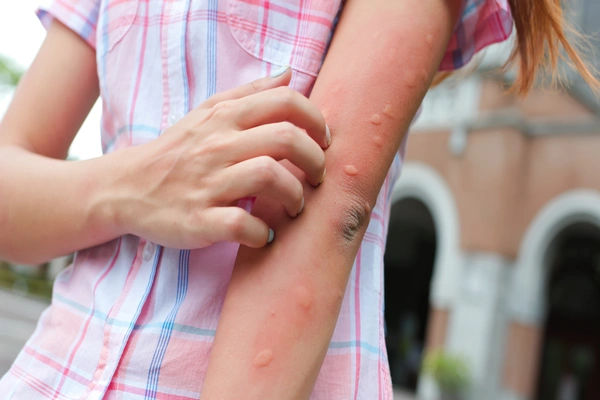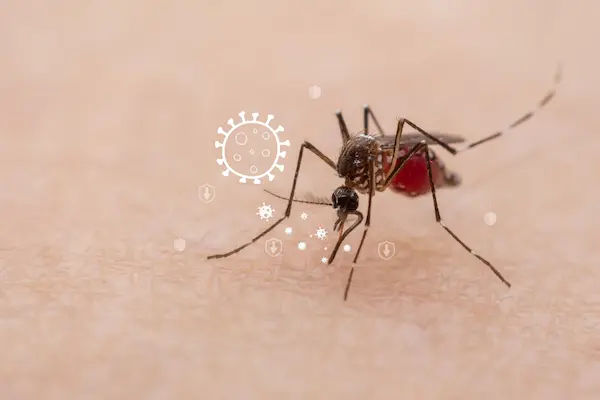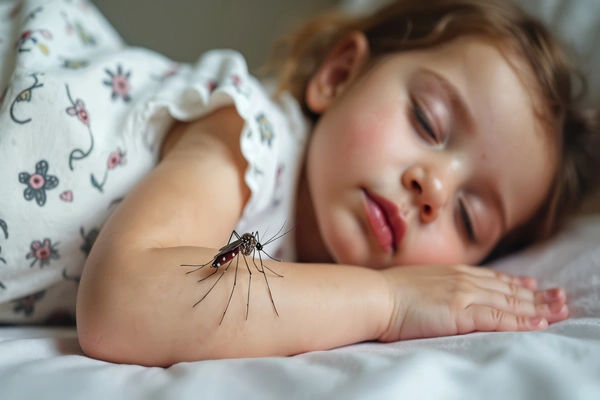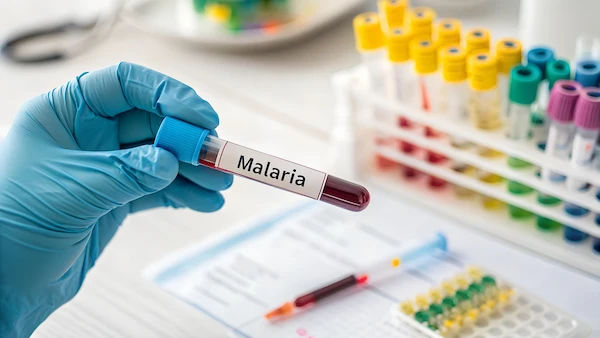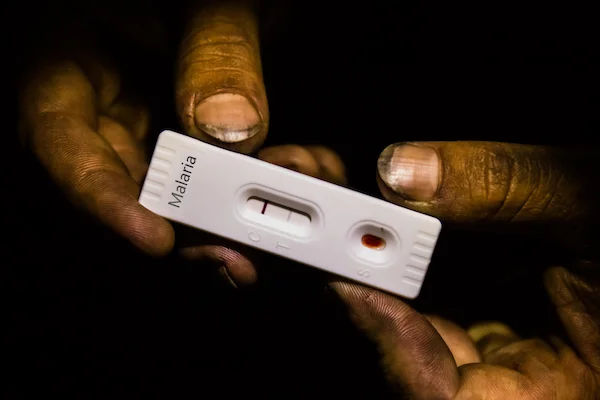Malaria Recovery Time: How Long Until You Feel Better?
Know about the malaria recovery, what it is, timeline for recovery, know the warning signs, key factors influencing the recovery and more.

Written by Dr. Mohammed Kamran
Reviewed by Dr. Rohinipriyanka Pondugula MBBS
Last updated on 13th Jan, 2026
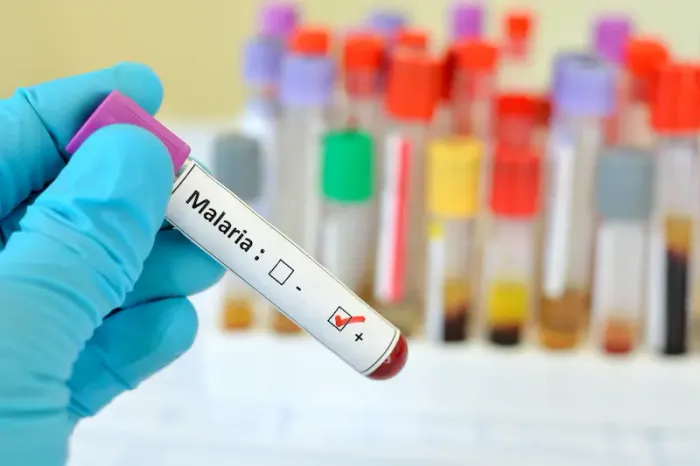
Introduction
Malaria is a formidable illness, and overcoming it is a significant victory for your body. But the battle doesn't always end when the fever breaks. A common question for patients and caregivers is, "How long does it take to fully recover from malaria?" The answer isn't a simple number, as recovery is a process influenced by several factors. This guide will walk you through the typical malaria recovery timeline, from the first dose of medication to finally regaining your full strength. We'll explore what to expect at each stage, factors that can speed up or slow down your progress, and practical tips to support your body's healing journey.
What is Malaria? A Quick Recap
Before diving into recovery, it's helpful to remember what the body is fighting. Malaria is a serious infectious disease caused by Plasmodium parasites, transmitted through the bite of an infected Anopheles mosquito. These parasites travel to the liver, multiply, and then invade red blood cells, causing them to burst. This cycle leads to the classic symptoms: high fever, chills, sweating, headaches, nausea, and body aches. The severity and duration of the illness depend heavily on the specific parasite species and how quickly effective treatment is started.
Consult a General Practitioner for Personalised Advice
The Standard Malaria Recovery Timeline
For uncomplicated malaria treated promptly with appropriate antimalarial drugs, recovery generally follows a predictable pattern. It's crucial to complete the full course of medication, even if you start feeling better early on.
Phase 1: Initial Treatment Response (First 48-72 Hours)
Once you begin treatment, the drugs start working rapidly to kill the malaria parasites in your bloodstream. You can expect a significant reduction in fever and the most severe symptoms within 24 to 48 hours. The intense chills and sweats typically subside as the medication brings the parasitic load under control.
Phase 2: Symptom Resolution and Parasite Clearance (Days 3-7)
Over the next several days, most other symptoms like headache, nausea, and muscle aches will gradually improve. Fatigue, however, often persists. Modern medications are highly effective, and the parasites are usually completely cleared from the blood within a few days to a week of starting treatment. Despite being parasite-free, your body is still dealing with the aftermath of the infection.
Phase 3: Full Recovery and Regaining Strength (2-4 Weeks)
This is the longest phase and often the most frustrating for patients. The feeling of general weakness, fatigue, and lack of energy can linger for several weeks, sometimes even a month or two. This is because your body needs time to regenerate the red blood cells destroyed by the parasite, clear out toxins, and allow your immune system to return to its baseline. This period, known as convalescence, is normal and requires patience.
Key Factors That Influence Your Recovery Speed
Why does one person bounce back in a week while another feels weak for a month? Your malaria recovery time depends on several key variables.
Type of Malaria Parasite (P. vivax vs. P. falciparum)
The parasite species matters immensely. P. falciparum is the most dangerous and can cause severe, life-threatening complications, often leading to a much longer recovery. P. vivax and P. ovale can form dormant liver stages (hypnozoites) that can reactivate weeks or months later, causing a relapse. This means "recovery" isn't complete until these hidden parasites are also treated with a separate drug like primaquine.
Severity of the Infection at Diagnosis
The higher the parasite load in your blood at the time treatment begins, the harder your body has to work to recover. An early diagnosis leads to a shorter, simpler recovery. A delayed diagnosis can allow the disease to progress to severe malaria, affecting organs and drastically prolonging the time to recover from falciparum malaria.
Your Overall Health and Age
Your baseline health is a major factor. Well-nourished adults with strong immune systems generally recover faster. Children, pregnant women, the elderly, and individuals with compromised immunity or other health conditions often face a more prolonged and challenging recovery period.
Promptness and Accuracy of Treatment
Receiving the correct antimalarial medication for the specific parasite in your region without delay is the single biggest factor you can control. Drug resistance can also play a role; if the prescribed treatment is ineffective, recovery will not begin until the correct drugs are administered.
Severe Malaria: A Longer and More Complex Road to Recovery
Severe malaria (e.g., cerebral malaria, severe malarial anaemia, organ failure) is a medical emergency requiring intensive hospital care. The initial treatment phase in the hospital may last 1-2 weeks. However, the recovery period afterwards is significantly extended. It can take many months to fully recuperate from the profound weakness and potential neurological or organ damage caused by severe infection. This path requires close medical supervision and a very gradual rehabilitation process.
Post-Malaria Recovery: Tips to Regain Your Strength Faster
While your body does the heavy lifting, you can support the healing process. A focused post-malaria recovery diet and lifestyle are essential.
Nutritional Support for Healing
Focus on easy-to-digest, nutrient-dense foods.
1. Iron-Rich Foods: To combat malarial anaemia (e.g., leafy greens, lentils, dates, lean red meat).
2. High Proteins: For tissue repair and immune function (e.g., eggs, chicken, fish, dairy, pulses).
3. Complex Carbohydrates: For sustained energy (e.g., whole grains, oats, bananas).
4. Plenty of Fluids: To stay hydrated and flush out toxins
The Importance of Hydration and Rest
Fatigue is your body's signal to rest. Do not push yourself. Prioritise sleep and allow for naps during the day. Adequate rest is non-negotiable for healing. Similarly, drink plenty of water, oral rehydration solutions, coconut water, and fresh soups.
Gradual Return to Activity
Avoid strenuous exercise or physically demanding work for at least a few weeks. Start with short, gentle walks and gradually increase activity as your energy levels permit. Listen to your body and stop if you feel tired.
Recognising Warning Signs: When to Seek Further Help
While fatigue is normal, certain symptoms warrant immediate medical attention. If symptoms persist beyond two weeks, or if you experience a return of fever, confusion, severe weakness, jaundice (yellowing skin), or difficulty breathing, consult a doctor online with Apollo24|7 for further evaluation.
Conclusion
Recovering from malaria is a marathon, not a sprint. While medication quickly tackles the active infection, the journey back to full health requires time and self-care. The typical timeline for uncomplicated malaria involves feeling better within days but regaining full strength over several weeks. Remember that factors like the parasite type, your health, and treatment timing all play a role. By focusing on rest, nutrition, and hydration, you give your body the best tools to heal completely.
Consult a General Practitioner for Personalised Advice
Consult a General Practitioner for Personalised Advice

Dr. Mainak Baksi
General Practitioner
13 Years • MBBS , MD (MPH)
Howrah
Mainak Baksi Clinic, Howrah
(50+ Patients)

Dr. Rajib Ghose
General Physician/ Internal Medicine Specialist
25 Years • MBBS
East Midnapore
VIVEKANANDA SEBA SADAN, East Midnapore

Dr. K Vijaya Kumar
General Practitioner
5 Years • MBBS, Fellowship in Diabetes Mellitus
Mottur
PADMAVATHI CLINIC, Mottur
Dr. Vignes Anand Srinivasalu
General Practitioner
7 Years • MBBS, Fellowship in Clinical Cardiology, Fellowship in Diabetology, Fellowship in Infectious Disease.
Chennai
VRUKSHAM CLINIC, Chennai
Dr. Vinod Babu Sugumaran
General Practitioner
5 Years • MBBS, MD (Biochemistry),Ph D in Biochemistry, CC in Evidence based Diabetes
Villianur
Sugam Telecliniq, Villianur
Consult a General Practitioner for Personalised Advice

Dr. Mainak Baksi
General Practitioner
13 Years • MBBS , MD (MPH)
Howrah
Mainak Baksi Clinic, Howrah
(50+ Patients)

Dr. Rajib Ghose
General Physician/ Internal Medicine Specialist
25 Years • MBBS
East Midnapore
VIVEKANANDA SEBA SADAN, East Midnapore

Dr. K Vijaya Kumar
General Practitioner
5 Years • MBBS, Fellowship in Diabetes Mellitus
Mottur
PADMAVATHI CLINIC, Mottur
Dr. Vignes Anand Srinivasalu
General Practitioner
7 Years • MBBS, Fellowship in Clinical Cardiology, Fellowship in Diabetology, Fellowship in Infectious Disease.
Chennai
VRUKSHAM CLINIC, Chennai
Dr. Vinod Babu Sugumaran
General Practitioner
5 Years • MBBS, MD (Biochemistry),Ph D in Biochemistry, CC in Evidence based Diabetes
Villianur
Sugam Telecliniq, Villianur
More articles from Malaria
Frequently Asked Questions
1. Why do I feel so tired for weeks after finishing malaria treatment?
This persistent fatigue is common and is known as post-malaria asthenia. It occurs because your body is working to replenish the millions of red blood cells destroyed by the parasite, clear cellular debris, and restore your immune system to balance. This process demands a huge amount of energy.
2. Can malaria come back after I've recovered?
Yes, but in two different ways. A recrudescence is the return of symptoms from the original infection due to inadequate treatment or drug resistance. A relapse is specific to P. vivax and P. ovale parasites, where dormant liver stages reactivate later. A drug like primaquine is used to prevent relapses.
3. What is the best diet for recovering from malaria?
The best post-malaria recovery diet is light, easy to digest, and rich in iron and protein. Focus on foods like lentil soup, vegetable khichdi, eggs, fish, leafy greens, fruits, and plenty of fluids like coconut water and ORS to rebuild strength and correct anaemia.
4. How long after malaria treatment can I return to work?
This depends on the job's physical demands. For a sedentary job, you might return after a week if your fever is gone and your energy is improving. For a physically demanding job, you may neA.ed to wait 2-3 weeks or until your doctor clears you. Listen to your body and don't rush.
5. Is it normal to have a loss of appetite after malaria?
Yes, a reduced appetite is very common during and after the acute illness. Focus on small, frequent meals and nutrient-dense smoothies or soups to ensure you're getting calories and nutrients even if you don't feel hungry. Your appetite should gradually return as you recover.
